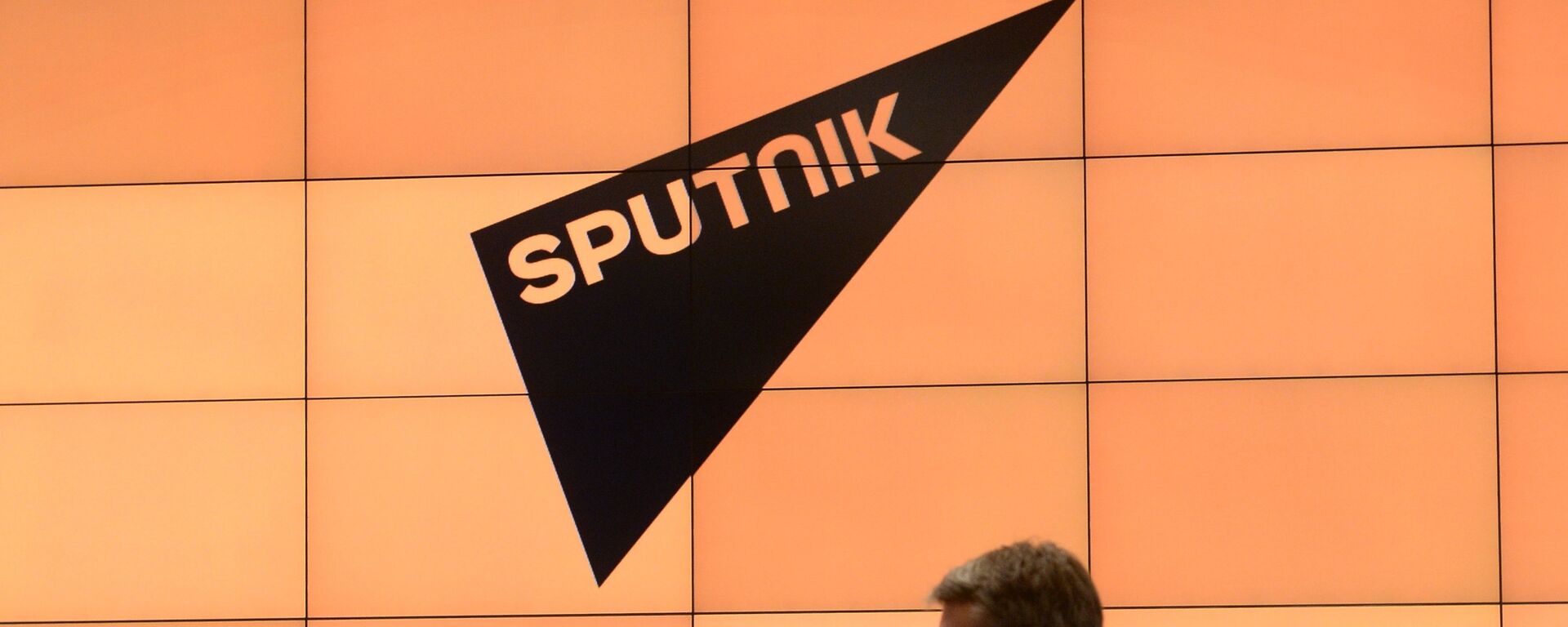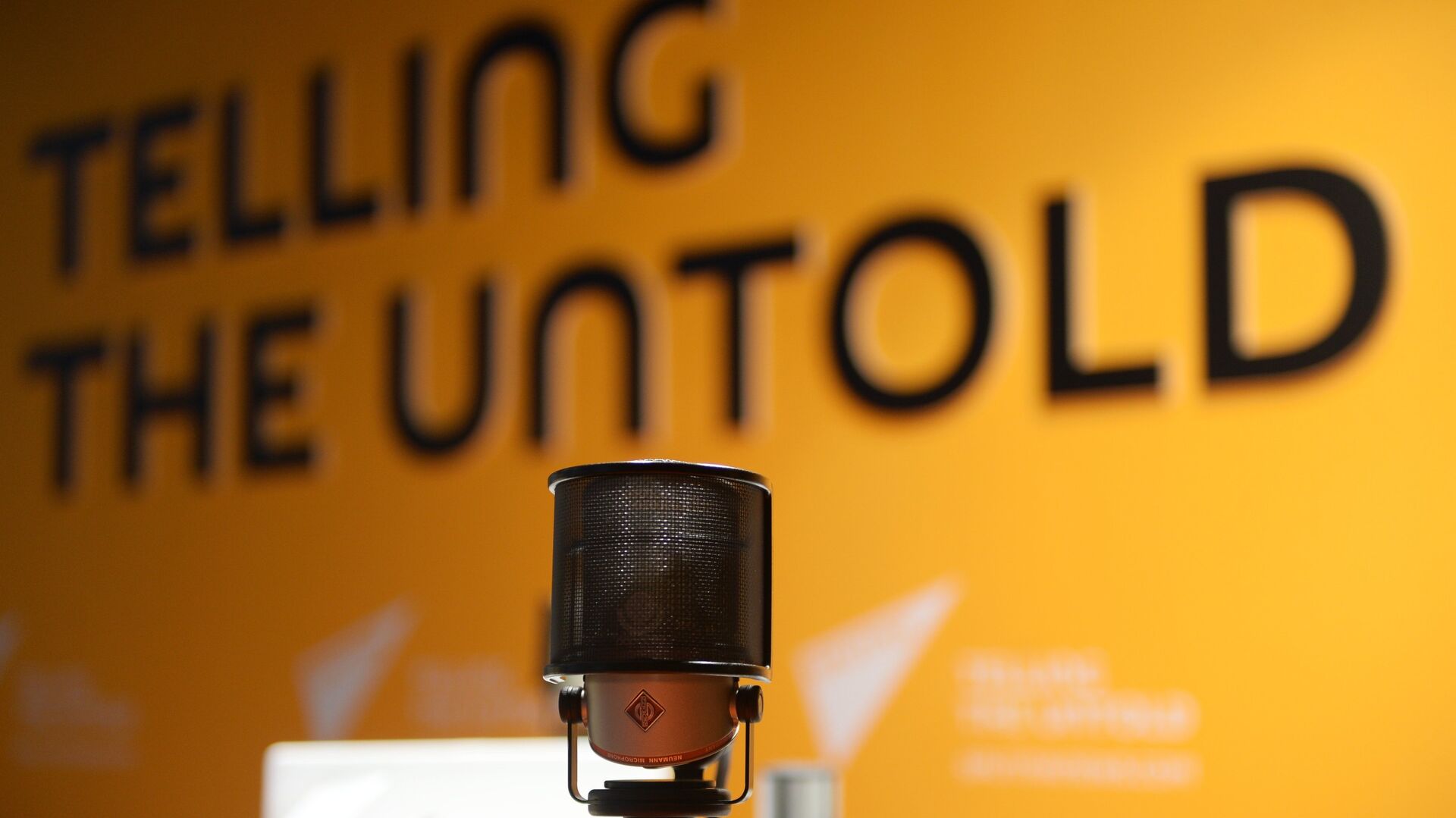https://sputnikglobe.com/20220228/romania-to-block-sputnik-and-stop-broadcasting-of-rt-by-days-end-1093441946.html
Romania to Block Sputnik and Stop Broadcasting of RT by Day's End
Romania to Block Sputnik and Stop Broadcasting of RT by Day's End
Sputnik International
Romania is the latest country to take measures to crack down on Russian foreign-language media over the crisis in Ukraine. On Sunday, European Commission... 28.02.2022, Sputnik International
2022-02-28T09:10+0000
2022-02-28T09:10+0000
2022-02-28T10:10+0000
romania
https://cdn1.img.sputnikglobe.com/img/103812/73/1038127301_0:160:3077:1890_1920x0_80_0_0_9ff57e1c76d8404c48cd748a89ae98b8.jpg
Romania will block access to Sputnik and cut off broadcasts of RT by the end of the day Monday, the country's cabinet of ministers has announced.Sputnik appeared in a list of sites to be shut down, while RT will be banned from broadcast by local operators.Sputnik Moldova-Romania is one of over two dozen sister agencies of Sputnik International, and is the latest Russian foreign language news outlet to face censorship in recent days.Earlier Monday, Sputnik Polska became unavailable to users in Poland. Over the weekend, multiple Sputniks, including Sputnik International, Sputnik German SNA, Sputnik Ceska Republika and Sputnik Polska reported large-scale DDoS attacks.Sputnik Moldova received notification from Moldovan authorities Saturday that the news agency's website would bet shuttered effective immediately and its radio broadcasts blocked by 7 March. The decision prompted the outlet to create new website addresses.In addition to censorship from state entities, Russian media have been targeted by the Anonymous hacker group, which declared a "cyberwar" on the Russian government over the crisis in Ukraine.On Sunday, European Commission President Ursula von der Leyen promised to "ban in the EU the Kremlin's media machine.""The state-owned Russia Today and Sputnik, as well as their subsidiaries, will no longer be able to spread their lies to justify Putin's war and to sow division in our union," she said.Also Sunday, Google banned the download of the app for RT's Russian channel in Ukraine at Kiev's request. Meanwhile, Facebook has vowed to crack down on a Ukraine-related "misinformation" campaign. Google-owned YouTube has launched its own censorship campaign, targeting Sputnik, RBC, TV Zvezda and others.The targeting of Russian foreign language media by Western governments is nothing new. Before the dramatic events of this week, Sputnik and other agencies were subjected to other, often less conspicuous attacks and forms of censorship - such as shadow bans on social media and in search engine results, as well as targeted shutdowns and hacking attack attempts. The outward facing media of other countries, including Iran, China and Venezuela, have experienced similar hurdles.The censorship is part of a broad package of measures taken by the US, the EU and their allies against Russia over its ongoing military operation in Ukraine, with other measures including tough new banking and personal sanctions, and the shutdown of airspace to Russian commercial aircraft. Moscow began what President Putin dubbed a "special military operation" in Ukraine on Thursday aimed at "demilitarising and denazifying" the country after a request for assistance from the Donetsk and Lugansk People's Republics - which have faced weeks of intensified artillery and mortar attacks by Ukrainian forces.
https://sputnikglobe.com/20220226/sputnik-international-sputnik-czech-republic-face-mass-ddos-attacks-1093400122.html
romania
Sputnik International
feedback@sputniknews.com
+74956456601
MIA „Rosiya Segodnya“
2022
News
en_EN
Sputnik International
feedback@sputniknews.com
+74956456601
MIA „Rosiya Segodnya“
Sputnik International
feedback@sputniknews.com
+74956456601
MIA „Rosiya Segodnya“
romania
Romania to Block Sputnik and Stop Broadcasting of RT by Day's End
09:10 GMT 28.02.2022 (Updated: 10:10 GMT 28.02.2022) Romania is the latest country to take measures to crack down on Russian foreign-language media over the crisis in Ukraine. On Sunday, European Commission President Ursula von der Leyen recommended banning Sputnik and RT across the European Union.
Romania will block access to Sputnik and cut off broadcasts of RT by the end of the day Monday, the country's cabinet of ministers has announced.
"Romanian authorities are taking steps to block certain sources which have been identified as spreading fake news in the context of the crisis in Ukraine," government spokesman Dan Carbunaru said in a press briefing Monday.
Sputnik appeared in a list of sites to be shut down, while RT will be banned from broadcast by local operators.
Sputnik Moldova-Romania is one of over two dozen sister agencies of Sputnik International, and is the latest Russian foreign language news outlet to face censorship in recent days.
Earlier Monday, Sputnik Polska
became unavailable to users in Poland. Over the weekend, multiple Sputniks, including Sputnik International, Sputnik German SNA, Sputnik Ceska Republika and Sputnik Polska
reported large-scale DDoS attacks.
Sputnik Moldova
received notification from Moldovan authorities Saturday that the news agency's website would bet shuttered effective immediately and its radio broadcasts blocked by 7 March. The decision prompted the outlet
to create new website addresses.

26 February 2022, 16:14 GMT
In addition to censorship from state entities, Russian media have been targeted by the Anonymous hacker group, which declared a "cyberwar" on the Russian government over the crisis in Ukraine.
On Sunday, European Commission President Ursula von der Leyen promised to "ban in the EU the Kremlin's media machine."
"The state-owned Russia Today and Sputnik, as well as their subsidiaries, will no longer be able to spread their lies to justify Putin's war and to sow division in our union," she said.
Also Sunday, Google
banned the download of the app for RT's Russian channel in Ukraine at Kiev's request. Meanwhile, Facebook has vowed
to crack down on a Ukraine-related "misinformation" campaign. Google-owned YouTube has launched its own censorship campaign,
targeting Sputnik, RBC, TV Zvezda and others.
The targeting of Russian foreign language media by Western governments is nothing new. Before the dramatic events of this week, Sputnik and other agencies were subjected to other, often less conspicuous attacks and forms of censorship - such as shadow bans on social media and in search engine results, as well as targeted shutdowns and hacking attack attempts. The outward facing media of other countries, including Iran, China and Venezuela, have experienced similar hurdles.
The censorship is part of a broad package of measures taken by the US, the EU and their allies against Russia over its ongoing military operation in Ukraine, with other measures including tough new banking and personal sanctions, and the shutdown of airspace to Russian commercial aircraft. Moscow began what President Putin dubbed a "special military operation" in Ukraine on Thursday aimed at "demilitarising and denazifying" the country after a request for assistance from the Donetsk and Lugansk People's Republics - which have faced weeks of intensified artillery and mortar attacks by Ukrainian forces.




